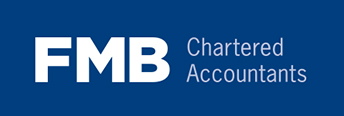It appears increasingly likely that the UK will exit the European Union with effect from 29 March 2019. What remains to be seen at this point is whether a trade agreement can be reached in advance of this date. Should a trade agreement not be reached a “no deal” Brexit will occur. Should this “no deal” Brexit happen the UK will be considered a third country with effect from 29 March 2019. Some implications of a “no deal” Brexit for trade are as follows:
- The UK will no longer be part of the Single Market & Customs Union.
- The UK would have no trade or cooperation agreements in place with the EU.
- The UK will be considered a third country i.e. a non EU territory.
What this means for your business:
Supplies of goods to the UK:
- Will be considered as exports for VAT and Customs purposes.
- Will require a customs declaration.
- May be subject to intervention.
- May be subject to licence requirements.
- Generally requires payment of duties and UK VAT at point of entry.
Receipt of goods from the UK:
- Will be considered imports for VAT and Customs purposes
- Will require a customs declaration.
- May be subject to intervention.
- May be subject to licence requirements
- Generally subject to payment of duties and Irish VAT at point of entry.
Supplies to the UK from Ireland will no longer be considered intra community supplies with the result that VAT will no longer be charged nor self-accounted for by the recipient customer. Conversely, receipt of goods from the UK will be considered imports with VAT arising at point of entry in normal circumstances. Finance Minister Paschal Donoghue has proposed introducing an import VAT postponed accounting scheme. What this might mean in practice remains to be seen but it is anticipated that the introduction of such a scheme would result in import VAT not being paid at point of entry by VAT registered businesses but self-accounted for in their periodic VAT returns as has been the case heretofore.
What you/your business can do now:
- If you intend importing or exporting goods from/to the UK you should apply for Customs Registration number (EORI) now.
- Ensure your classifications are accurate. These classifications will determine the rates of duty payable on goods you import.
- Engage a customs clearance agent.
- Access the Brexit sections of Revenue & the Department of Business, Enterprise & Innovation websites
Irish Companies with UK Directors
There is a requirement in Irish Company Law that all Irish companies must have at least one EEA resident director. Therefore, if your company has only UK directors, they may not comply with the Company Law requirements as the UK will fall outside of the EEA following a no-deal Brexit. There are options available to correct this:
- Take out a Section 137 Bond
- Appoint an EEA resident director
- File a form B67 in the Companies Office (Application for a certificate stating that a company has a real and continuous link with one or more economic activities being carried on in the State)
As this situation is very fluid at present, further updates will follow.





